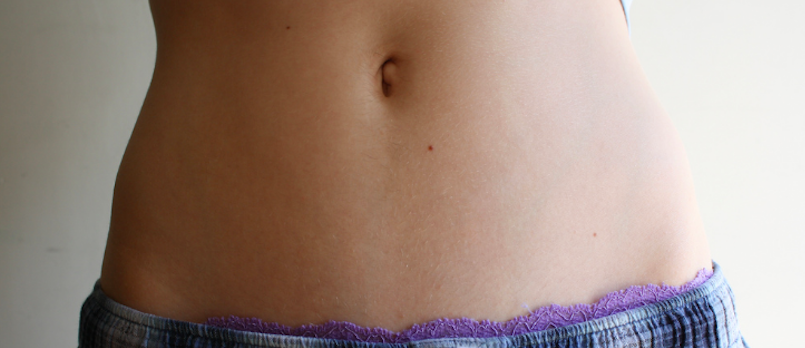A fascinating new study was just released on the gut microbiome and PCOS.
The study included 163 women: 48 of them healthy, 42 had polycystic ovary morphology (PCOM, meaning their ovaries have cysts that LOOK LIKE PCOS-type cysts, but according to the study, they didn’t meet the other criteria of PCOS), and 72 were formally diagnosed with PCOS.
A lot of other studies have shown that women with PCOS have fewer types of gut microbes, and many studies have confirmed that metabolic conditions,like diabetes and increased abdominal fat, are also associated with similar changes in the microbiome. This study indeed confirmed that the women with PCOS had very different microbiomes and fewer types of gut bacteria than women without (1).
Is The Microbiome Different Because of Insulin Resistance or Testosterone?
A main goal of thisstudy was to determine whether the difference in the women’s microbiome was related to insulin resistance, or if it was due to the increased testosterone levels that are found in PCOS.
In order to answer this question, the women were tested for fasting insulin and glucose (HOMA-IR), and took a standard oral glucose tolerance test. As we’ve learned in other studies, many women with PCOS have insulin resistance and yet often have very normal blood sugar levels. Because of this, we can’t use the standard tests for diabetes to pick this up.
It should be noted here that the women in the PCOM study group were leaner than the ones with PCOS, and even a little leaner overall than the control group women.
This group of women (PCOM) DID have PCOS-like qualities, namely fewer periods per year, more facial hair (hirsutism) and far more variation in their cycles than the “healthy” women, as well as the PCOS-like cysts on their ovaries.
So, what this group appears to be, is a milder form of PCOS, and perhaps their PCOS was milder due to the fact that they were lean.
Lean Women with PCOS and Insulin Levels
What we also know is that many lean women with PCOS have completely normal fasting insulin levels, but they often secrete much more insulin after the consumption of glucose compared to women without PCOS. We see this in the clinic repeatedly when we conduct the glucose insulin challenge test on lean women with PCOS.
This means that after these women eat, they often secrete higher than normal levels of insulin, or their insulin may follow a pattern indicating insulin resistance.
In addition, strong effects of insulin resistance have been seen in the vascular system and capillaries (1) in lean PCOS women (this is thought to be one of the physical signs you can see earliest).
Related:Branched Chain Amino Acids (BCAA) in Dairy, and Insulin Resistance
BMI is Not an Accurate Metric for Lean PCOS
The other marker used to determine the amount of insulin resistance was body mass index. We do know, however, that lean women with PCOS tend to have more belly fat, so even if their body mass index is low, they still have the physical body shape attributed to insulin resistance.
Rather than BMI, waist-to-height ratio should have been measured instead, as it would pick up the tendency to store abdominal fat that is associated with hyperinsulinemia.
Changes In The Microbiome in PCOS Are Clear: The Effect of Testosterone versus Insulin is Still to Be Determined
The study looked at the BMI, and the fasting insulin levels and found that these were not related to the change in microbiome, in a way excluding any effect of insulin resistance from the leaner PCOS/M groups. Since the tests used wouldn’t pick that up in these lean women anyway, we certainly can’t say that metabolic issues are not affecting the microbiome in PCOS!
Although it’s very clear that the microbiome is different in women with PCOS, we still don’t understand how much of that comes from androgen excess. Since there is a clear, repeated association between insulin resistance and changes in the microbiome, we definitely can’t rule that out!
Either way, it’s fascinating to see yet more solid information linking the major differences in the microbiome in PCOS. It’s also helpful to be able to illustrate how important it is that we order the right types of testing to pick up insulin resistance and hyperinsulinemia, since it is such a central factor in PCOS and can often be overlooked, particularly in lean women.
Article References:
- Ketel, I. J. G., Serné, E. H., Ijzerman, R. G., Korsen, T. J. M., Twisk, J. W., Hompes, P. G. A., … Lambalk, C. B.Insulin-induced capillary recruitment is impaired in both lean and obese women with PCOS.Human Reproduction (Oxford, England)2011;26(11):3130-7.https://doi.org/10.1093/humrep/der296
- Torres, P. J., Siakowska, M., Banaszewska, B., Pawelczyk, L., Duleba, A. J., Kelley, S. T., Thackray, V. G.Gut Microbial Diversity in Women with Polycystic Ovary Syndrome Correlates with Hyperandrogenism.The Journal of Clinical Endocrinology Metabolismhttps://doi.org/10.1210/jc.2017-02153

